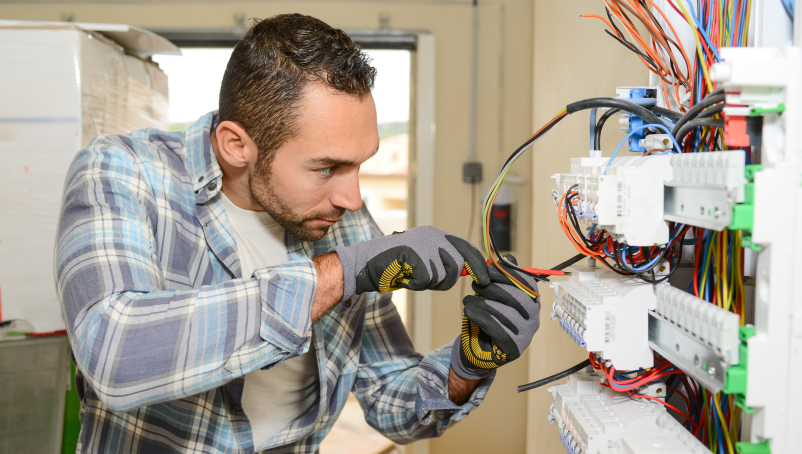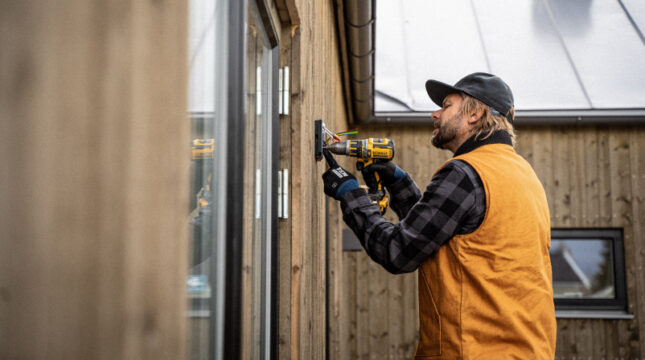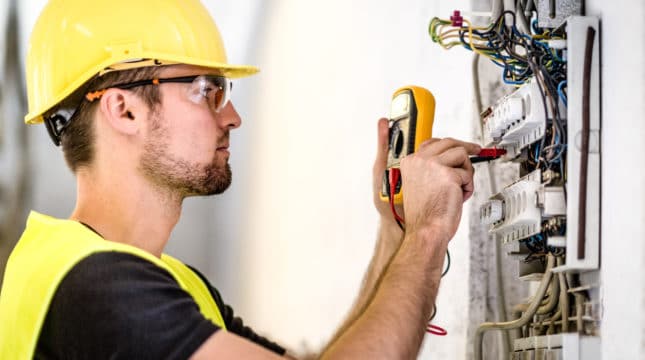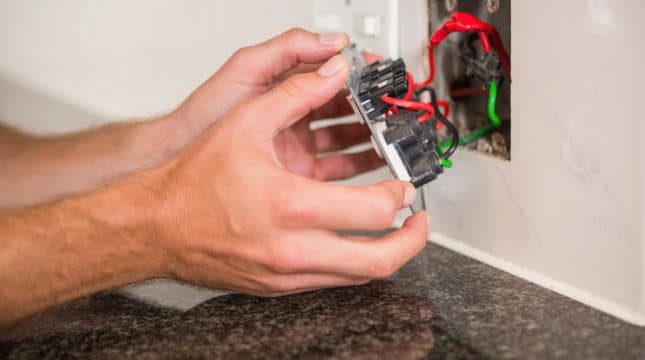Do you need an Iowa electrical license to work as an electrician?
You need a license to be an electrician in Iowa. The Department of Inspections, Appeals, & Licensing (DIAL) issues licensure through the Iowa Electrical Examining Board.
They issue the following types of licenses:
- Electrical Contractor
- Residential Electrical Contractor
- Class A Master Electrician
- Class B Master Electrician
- Residential Master
- Class A Journeyman Electrician
- Class B Journeyman Electrician
- Residential Electrician
- Apprentice Electrician
- Special Electrician
- Unclassified Person
This guide will focus on apprentice, residential, journeyman, master and contractor licenses.
Insurance requirements for an Iowa electrical license
If you have your own business as an electrical contractor, you’ll likely need various types of business insurance in Iowa. We can help you find the right electrician insurance to fulfill licensing and state mandates.
Workers’ Compensation insurance
You must have workers’ compensation to get your contractor’s license and hire employees. It helps cover costs related to workplace injuries, medical expenses and lost wages.
Learn more about workers’ compensation for contractors.
General Liability insurance
You must have general liability insurance as a contractor, but any electrician can benefit from this coverage. It helps cover property damage, client (or other non-employee), and advertising injuries.
In Iowa, an electrical contractor must maintain general and completed operations liability insurance for at least $1 million for all work that requires licensing.
Learn more about general liability insurance for contractors.
Commercial Property insurance
Get coverage for commercial spaces with commercial property insurance. It helps cover the structure, inventory, and equipment from covered events like fires or theft.
Business Owner’s Policy
A business owner’s policy, or BOP insurance, provides broad coverage of general liability and commercial property policies combined in a cost-efficient bundle. It helps cover damage that you or your employees may inadvertently cause to another person’s property and helps protect your business inventory in the event of a fire or other covered event.
Tools and Equipment insurance
Your tools and equipment are your lifeline. You can protect them with tools and equipment insurance. It covers work gear and equipment in events like theft or damage.
Commercial Auto insurance
You need commercial auto insurance if you drive a work vehicle. You can cover costs related to accidents like repairs and towing. Iowa requires all drivers to have coverage. Coverage minimums include:
- $20,000 of bodily injury or death per person or $40,000 per accident.
- $15,000 of injury to or destruction of property per accident.
How to get an Iowa electrical license
Getting various electrical licenses requires different amounts of training and work experience. Generally, the process for every level of licensure is the same. You can start the application process online, check your license status, and pay when you complete your application. You can also access digital copies of your license.
When you begin work in the field, you can start by applying for an apprentice license.
Apprentice electrical license
Applicants can submit a completed application and pay the applicable fee to get an apprentice electrician license. To qualify for this license, you must participate in an approved apprentice program or other training programs (including technical or vocational schools or post-secondary education.)
The DIAL website lists approved training programs. Contact the Board for other programs that may not be listed.
Journeyman electrician license
Journeyman electrical licenses come in three types: Residential, Class A and Class B. Class A journeymen have passed the state’s journeyman licensing exam.
You need to fulfill the following requirements for a Class B journeyman electrician license:
- Submit a completed application with the license fee
- Submit work verification of 16,000 hours of experience
To get a Class A license, you must achieve one of the following and pass the written journeyman exam:
- Completed a registered apprenticeship program; OR
- Hold a current class B journeyman electrician license; OR
- Holds a current license issued by the Board as a residential electrician; OR
- Hold a current electrician license in another state with equivalent requirements
PSI administers the journeyman electrical license exam. The exam is open-book and timed. (The National Electrical Code Handbook is allowed as a reference) You must score 70% to pass.
Residential journeyman license holders can only perform work in residences with some restrictions. To get this license, you must submit a completed application with the applicable fee, pass the residential electrician exam and meet one of the following:
- Completed 6,000 hours of experience as an apprentice electrician; OR
- Completed 4,000 hours of experience working under the direct supervision of a licensed residential master or journeyman electrician; OR
- Completed 8,000 hours of experience as a licensed unclassified person, including 2,000 hours of work experience in residential wiring; OR
- Completed a registered residential electrician apprenticeship program
Master electrician license requirements
Like journeyman-level licenses, there are several master-level licenses: residential master, Class A master and Class B master.
Let’s start with residential master license requirements. This applicant must submit a completed application and pay the fee along with the following:
- Hold a current residential electrician or journeyman electrician license
- 2,000 hours of verified experience as a residential electrician or a journeyman electrician
- Passed a residential master electrician examination
PSI administers the master residential exam.
Class B Master license applicants must apply for the license and present credible evidence of having worked for 16,000 hours of cumulative experience as a master electrician.
To get a Class A license, an applicant must pass the master electrical exam and meet one of the following:
- Completed one year of experience as a licensed journeyman electrician; OR
- Hold a current class B master electrician license
The master exam is also open-book and timed. You must score 70% to pass. Once you pass the exam, you can pay $375 for your license.
Electrical contractor license requirements
An electrical contractor license is for a person affiliated with an electrical contracting business whom the Board licenses as either a Master A or B electrician (or employs one).
If you have a master license (Class A, B or residential), you can obtain a residential electrical contractor license. All electrical contractors must be registered with the State of Iowa Division of Labor.
According to Iowa law, you will also need workers’ compensation and general liability insurance.
License reciprocity for Iowa electricians
If your state has a reciprocity agreement with Iowa, you may only have to go through some of the application process. Those states are:
- Alaska
- Arkansas
- Colorado
- Minnesota
- Montana
- Nebraska
- New Hampshire
- North Dakota
- Oklahoma
- South Dakota
- Texas
- Wisconsin
- Wyoming
If this applies to you, fill out a reciprocity agreement.
Iowa license renewal requirements
All journeyman and master-level electrical licenses expire every three years. You can renew via the online portal and pay the renewal fee.
During the three-year cycle, you’re required to complete at least 18 continuing education units (CEU) with at least six hours of study on the National Electrical Code (NEC). CEU hours for licenses issued for less than three years will be pro-rated.
If you have an apprentice license or are an unclassified person, you must renew it annually. Complete an application and pay the renewal fee.





